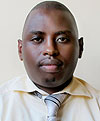Last week was a defining moment for Rwanda’s media industry. The Cabinet announced two major decisions; one, the transfer of media regulation function from the Media High Council to an “independent body of professional journalists”, and two, transforming Orinfor from a government mouthpiece to a public broadcaster.


Last week was a defining moment for Rwanda’s media industry. The Cabinet announced two major decisions; one, the transfer of media regulation function from the Media High Council to an "independent body of professional journalists”, and two, transforming Orinfor from a government mouthpiece to a public broadcaster.
However, this Column will focus on the former decision and what it means to the country’s growing media industry.
First, while it may not have come as a total surprise given the recent signals to the government’s renewed commitment to a more vibrant, free and professional media sector, I must admit that the speed at which the cabinet moved towards media self-regulation was kind of a shocker, and most importantly, challenging to media practitioners.
Since the current government came to power, it shouldered the responsibility for media regulation until 2002, when it established an autonomous regulator, Media High Council (MHC), whose board members represent different constituencies: the government (2), private media (2), public media (1), civil society (1) and private sector (1). The main idea was to ensure that media activities were regulated by a body that was more independent of government and one that actively sought to advance the rights and responsibilities of the media in equal measure.
Nonetheless, through the last nine years of its existence, the MHC has been marred by accusations that most of its decisions were influenced by government or politicians, and that it did little to advocate for and protect the rights of journalists.
Of course, that’s an unfair judgment of a body that was under immense public pressure to see to it that the media steered away from practices that undermined the country’s healing process following the 1994 Genocide against the Tutsi, in which the media played a key part. Yet it is also right to argue that the MHC has little to point to with regard to its contribution towards ensuring respect for journalists’ rights. In many practitioners’ view, the Council played more of a watchdog role as opposed to an advocacy one.
However, with calls for a review of MHC’s mandate and other legal instruments related to the media sector getting louder and louder in the recent past, it had increasingly become clear that it was no longer a question of if but when the government would grant the request. Already, a process is ongoing to revisit both the 2009 Media Law with a view of removing articles deemed unhelpful to media freedom, as well as the MHC law which had only been reviewed in 2009, with the aim of trimming the regulator’s powers. A law on access to information is also in the offing.
It will make Rwanda one of the few African countries with such legislation. Meanwhile, the media are still pushing for decriminalization of libel and slander, although lawmakers are generally still opposed to the idea.
Judging by the openness with which the government has responded to calls for these sweeping reforms, including a request for a gradual shift towards media self-regulation, it is clear that the government has moved fast, and chosen to pursue a progressive approach.
Nonetheless, the decision to hand the responsibility of media regulation to the industry players, presents a huge challenge to the latter.
For that to happen, there are basic conditions that must be in place. Firstly, media practitioners must be at a level of solidarity that is sufficient enough to set minimum professional standards which every member must voluntarily subscribe to. It is upon that common platform that a professional code of ethics and conduct that binds all practitioners should be developed and distributed to every member in a pocket-size booklet.
Secondly, practitioners must agree on the different forms of punitive measures against members found to have gone against the laid-out professional ethics. And in case any member is reprimanded accordingly, the decision needs to be supported and owned by all the other media outlets and practitioners.
However, the public needs to be sensitized about the importance of using rejoinders (right to reply) through the same media outlet that published or aired the contested story. Equally, the media must understand that running corrections or responses from the public enhances their own credibility.
In addition, media practitioners need to engage with media experts who are not necessarily in the profession, such as academics and other independent experts. Such resource people may bring in valuable independent minds and expertise which may be critical in helping the media regulate themselves.
Meanwhile, MHC will have enough time to concentrate on other pro-media functions such as capacity building and advocacy.
The government has played its part and thrown the ball into the media’s court. The latter must now urgently get organised and step up to the plate. We can successfully check on each other as peers, and collectively promote free and responsible journalism.
The author is a training editor with The New Times and Ist VP of Rwanda Journalists Association


